NABH’s Enhanced Denial-of-Care Portal is Now Available!
The National Association for Behavioral Healthcare is pleased to announce enhancements to its Denial-of-Care Portal that are intended to make the portal easier for members to use.
A year ago, NABH developed the Denial-of-Care Portal to collect specific data on insurers who deny care—often without regard to parity or the effects on patients. Now the association has updated this resource to make it more user-friendly for members and also more aligned with what regulators need to identify parity violations.
The updated portal includes fewer questions, which will require less time for members to complete. In addition, all questions are now optional. NABH hopes this will make it more likely for members to share the data they have. Lastly, NABH has added a checklist of “red flags” that were included in the 2022 MHPAEA Report to Congress from the U.S. Health and Human Services, Labor, and Treasury Departments in January.
“We know the best way to advocate for parity enforcement with regulators is to provide hard data from our members that show how insurers are not complying with the landmark 2008 parity law,” said NABH President and CEO Shawn Coughlin. “We hope these new changes will make it easier—and faster—for our members to use so that we can gather that critical data.”
Please e-mail Emily Wilkins, NABH’s administrative coordinator, if you have questions.
As always, thank you for all you do each day to support and advance NABH’s mission and vision!
ONDCP Releases Plan to Reduce Methamphetamine Supply and Save Lives
The White House Office of National Drug Control Policy (ONDCP) on Monday released the Biden administration’s plan to reduce the supply of methamphetamine and save lives as meth-related overdose deaths are rising in the United States.
Designed to reduce meth use and prevent meth-involved overdoses, the 25-page plan is also intended to expand access to evidence-based treatment and reduce the trafficking and supply of meth.
“The tragic rise in methamphetamine-involved overdose deaths requires immediate action,” ONDCP Director Rahul Gupta, M.D., M.P.H., M.B.A., FACP said in his agency’s announcement. “This bold, new action plan builds on the president’s National Drug Control Strategy by expanding access to evidence-based prevention, treatment, and harm reduction strategies, as well as reducing the supply of methamphetamine and other illicit drugs by going after drug trafficking organizations,” Dr. Gupta continued. “This comprehensive and forward-looking action plan will help make our communities healthier and safer.”
The plan applies a public health and safety approach that emphasizes treatment services, harm-reduction services, prevention in schools nationwide, training and education, domestic law enforcement coordination, federal oversight of pill press equipment, international partnerships to disrupt trafficking, and expanded training for domestic and international law enforcement agencies involved in disrupting meth distribution.
NABH participates in the Motivational Incentives Policy Workgroup that has met with ONDCP about broadly implementing the evidence-based treatment practice of contingency management, which the new plan highlights.
You can learn more about the Biden administration’s National Drug Control Strategy at the NABH 2022 Annual Meeting, when Dr. Gupta will address attendees on Tuesday, June 14 at 9:30 a.m. ET in the Grand Ballroom at the Mandarin Oriental Washington, DC.
President Biden Sends National Drug Control Policy to Congress
President Biden on Thursday sent his administration’s inaugural National Drug Control Policy to Congress with the goal of using a whole-of-government approach to combat the nation’s overdose crisis.
The comprehensive strategy focuses on the main drivers of the crisis—untreated addiction and drug trafficking—as it directs federal agencies to take actions that will expand access to evidence-based prevention, harm reduction, treatment, and recovery services, while also reducing the supply of drugs.
The plan comes as the nation continues to produce grim statistics: for the first time in America’s history, the country has passed the milestone of 100,000 deaths resulting from drug overdoses in a 12-month period. Meanwhile, since 1999, drug overdoses have killed approximately 1 million Americans.
A message from President Bident to Congress at the beginning of the strategy explains the Office of National Drug Control Policy led the effort to produce the strategy in close collaboration with the 18 national drug control agencies. In addition, the Biden administration involved more than 2,000 leaders and stakeholders, including Congress, all 50 Governors, and advocates representing public safety, public health, community groups, local governments, and Tribal communities.
An important component of the strategy is its emphasis on harm reduction, an approach that works with people who use drugs to prevent overdose and infectious disease transmission; improve the physical, mental, and social wellbeing of those served; and offer flexible options for accessing substance use disorder treatment and other health care services.
“We are changing how we help people when it comes to drug use, by meeting them where they are with high-impact harm reduction services and removing barriers to effective treatment for addiction,” Rahul Gupta, M.D., M.P.H., M.B.A., director of National Drug Control Policy, said in the document, “while addressing the underlying factors that lead to substance use disorder head on.”

